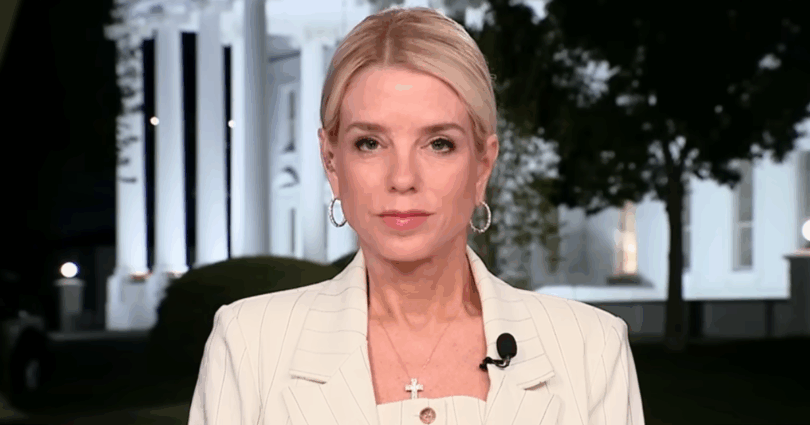DOJ Sues Idaho Town Over Church Zoning Clash
The Justice Department (DOJ) has taken the rare step of suing Troy, Idaho, accusing the city of violating federal law by blocking an evangelical congregation from its chosen worship space.
In its May 20 filing, the DOJ alleges that Troy’s denial of a conditional use permit for Christ Church runs afoul of the Religious Land Use and Institutionalized Persons Act (RLUIPA).
RLUIPA, enacted in 2000, forbids local governments from treating religious assemblies less favorably than comparable secular uses.
Troy’s downtown C-1 commercial zone explicitly allows clubs, museums, auditoriums and art galleries—but, according to the lawsuit, it excluded Christ Church from operating in the same district without justification.
Church elder Matt Meyer purchased a vacant bank building in November 2022, aiming to split the property between worship services and a community event space.
Meyer’s permit application highlighted the building’s potential to generate property-tax revenue and asserted that weekend gatherings would have minimal impact on local businesses, Fox News reports.
During a March public hearing, residents raised objections to the church’s presence, citing traffic, parking shortages and discomfort with Douglas Wilson’s conservative views.
Troy City Council ultimately rejected the request, stating the church “did not enhance the commercial district” and posed burdens on the town’s under-1,000 population.
The DOJ lawsuit challenges these rationales, noting that the city allows nonreligious events—such as book clubs and art shows—that draw similar crowds and generate equivalent parking demands.
According to the complaint, Troy never conducted a traffic study nor offered to negotiate conditions, such as limited service times or reserved parking, that could have addressed officials’ concerns.
Moreover, the lawsuit cites numerous public comments demonstrating “animus and discrimination against Christ Church, its members, and their religious beliefs.”
It accuses Troy of imposing a “substantial burden” on the church’s religious exercise and granting “unequal treatment” compared with secular assemblies.
The lawsuit comes on the heels of Attorney General Pam Bondi’s recent establishment of an anti-Christian bias task force within the DOJ, as TTOA previously reported.
This new task force aims to identify and combat instances of discrimination against Christian individuals and organizations in government policies and practices.
Bondi emphasized that protecting religious freedoms, particularly for Christian communities, is a key priority of the DOJ’s civil rights efforts.
The creation of this task force signals a broader push by the DOJ under her leadership to address perceived anti-Christian bias nationwide, lending further weight to the lawsuit against Troy.
Troy’s attorney, Todd Richardson, dismissed the accusations as “bullying tactics” by the DOJ. He pointed out that Christ Church has held services in the building for the past two years while the DOJ investigation unfolded.
“We have no complaints about Christ Church being in town. We have concerns about overwhelming that zone,” Richardson told Fox News, stressing the need to preserve a two-block commercial core.
Senior Pastor Douglas Wilson, known for his provocative writings and 2020 mask-mandate protests, told the outlet that local officials never sought solutions to traffic or parking issues.
“The content of things that I say should have nothing to do with whether a church is allowed to meet,” he said. “You don’t approve a religious assembly based upon your disagreement with certain views expressed.”
In April, Troy enacted an interim zoning ordinance that removed auditoriums, community centers and places of worship from permitted uses in the C-1 district—effectively barring all churches unless the code is revised.
The DOJ lawsuit seeks declaratory relief, an injunction to allow Christ Church to meet in its chosen location and reimbursement of legal fees.
Assistant Attorney General Kristen Clarke of the Civil Rights Division emphasized the government’s role in protecting religious freedom.
“RLUIPA unequivocally forbids local governments from deciding zoning matters based on their dislike of certain religious groups,” she stated in a DOJ press release.
“The Department of Justice will not hesitate to file suit against jurisdictions that discriminate in land use matters on the basis of the applicants’ religious beliefs.”
A small Idaho town city council flexing their anti-Christian hate just got sued by Trump's DOJ.
Let's Go!!!!!https://t.co/Orw7b3pIrD pic.twitter.com/og6QTAMPgD
— Matt Edwards (@TrueMattEdwards) May 21, 2025
Continue Scrolling for the Comments


Leave a Comment